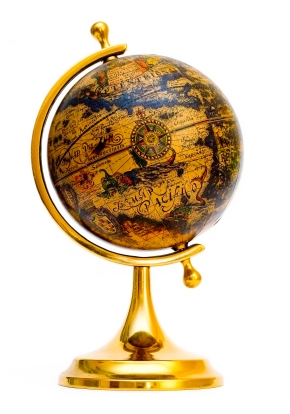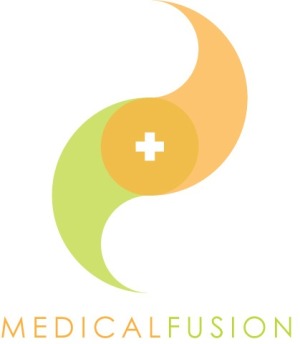 Forget about yesterday and refocus your energies on hitting your next shot.
Forget about yesterday and refocus your energies on hitting your next shot.
Well, it's good to be back.
This past week I had the pleasure of taking a trip out to Arizona where I took in the PGA event at the Ritz-Carlton Golf Club and caught up with my friend Dr. Steven Knope, author of Concierge Medicine: A New System to Get the Best Healthcare .
It was a whirlwind tour, but one that left me with some time to think about the state of clinical medicine and our place as physicians within it.
During the flight to Arizona, I whipped out my new iPad and finished reading Steve's book using the iPad Kindle application. It's a great read, and for those of you who have questions about Concierge Medicine, I would certainly recommend it. Be forewarned, the book is not a "how to" book that tells you how to set up your clinical practice in a concierge or retainer style; it's basically a narrative of how Steve ended up in his current form of medicine and some of the arguments for and against the model. I found it fascinating and after reading it I was even more eager to meet with Steve and bounce some questions off of him.
However, before I met with Steve, I had the opportunity to attend the World Golf Championship-Accenture Match Play Championship on Wednesday. If you're not a golf fan, basically this tournament includes the top 64 golfers in the world who compete head to head in a single-elimination format until the champion is crowned five days later.
I'm not a golfer, but walking around the course during this PGA event, watching the top 64 players in the world compete, I was really amazed. Even a non-player like myself could appreciate the talent and dedication it takes to be able to consistently hit shot after shot, all the while battling strong gusts of wind, fairways lined with crowds, and television cameras on every corner.
What I found most inspiring, though, was not the incredibly placed shots that seemed to occur on a regular basis, but the imperfect ones that took a wrong bounce or caught an errant gust of wind and were pushed into the rough (or worse). More precisely, it wasn't the bad shots themselves that were all that inspiring as were the responses of the pros who hit those shots.
Yes, there were a few fits of frustration when shots went awry, but to a man, every one of those pros recentered themselves when they went to follow up. Often enough, when a pro hit a bad shot, he followed it up with an incredible adjustment shot and ended up close to where he would have been in the first place. I observed multiple shots from bunkers, the rough, and out of bounds, that ended on the green near the hole. It was as if the player wiped his mind clean as he approached his botched shot and made the best of the situation. The memory of his "failure" was seemingly forgotten, and his focus was turned towards his current challenge with renewed intensity.
It was a great character lesson, to be sure, and provided me with much to think about as I headed to my meeting with Steve towards the end of the week.
For those of you who do not know Dr. Steven Knope, he was one of the first Concierge Medicine physicians in the country and wrote one of the most popular books on the subject. He's been interviewed by multiple media outlets and was a speaker at our 2010 Medical Fusion Conference. Steve is intelligent and candid, and I thoroughly enjoyed talking with him about Concierge Medicine, his practice, writing his book, and his views of the changing face of clinical medicine.
During our talk, one of the things that came up was a recent article that appeared in The Wall Street Journal . Steve had forwarded me a link to the article prior to our meeting, and we took some time to dissect its meaning for Concierge Medicine and clinical medicine in general.
In this article, the author points out that the recently passed healthcare legislation has already significantly changed the healthcare landscape.
Here's a excerpt:
The most significant change is a wave of frantic consolidation in the health industry. Because the law mandates that insurers accept all patients regardless of pre-existing conditions, insurers will not make money with their current premium and provider-payment structures. As a result, they have already started to raise premiums and cut payments to doctors and hospitals. Smaller and weaker insurers are being forced to sell themselves to larger entities.
Doctors and hospitals, meanwhile, have decided that they cannot survive unless they achieve massive size—and fast. Six years ago, doctors owned more than two-thirds of U.S. medical practices, according to the Medical Group Management Association. By next year, nearly two-thirds will be salaried employees of larger institutions.
Very interesting stuff.
It seems that many physicians have seen the proverbial "writing on the wall" and are selling out in an attempt to protect themselves from what's coming.
Look, I'm not saying that every physician job in a large institution is a bad one and I'm also not saying that every physician has a desire to run his or her own practice. However, when the percentage of doctor-owned practices goes from more that two-thirds to approximately one-third in such a short time, something is amiss.
The simple fact is that today, more than any time previously, physicians are under attack. A clinical physician today was already being squeezed by an out-of-control malpractice environment, falling reimbursements, huge student loan debt, and increasing paperwork and regulation. With the added pressures of the new healthcare laws, many are simply saying "enough is enough" and throwing in the towel. Conformity and subservience is preferred to bankruptcy, or so the thinking most likely goes, and at a time when we desperately need physician-leaders, many seem to be simply checking out.
In any event, Steve had some great insights into how Concierge Medicine fits into the big picture of American healthcare these days (more on this in a later post) and when I began thinking about things after our chat, my mind began drifting back to those golf pros from the PGA and how they handle their difficulties on the links.
When I watched those athletes, it became very clear that the line separating their talent was very thin. On any given day, the winner-- more often than not-- is simply the guy who can refocus himself after a tough go of it and remain mentally tough in spite of trying circumstances.
As physicians today, it's obvious that we've received more than our share of frustrating circumstances and difficulties. The key, though, is in how we approach these circumstances. We can check out, certainly, or obsess about the past and "what might have been." We can stew in our frustration and bask in the collective pity-party in the doctor's lounge, or we can begin looking for ways to move forward.
What if we took a tip from the pros in the PGA and stopped looking backwards and began to look forward once again? Why not wipe the past away, focus on what we can change, and begin to move forward? What if we all stopped worrying about the ultimate outcome and... just hit the next shot.
The purpose of Freelance MD and our Medical Fusion Conference is to provide resources to help all of us do this. We've assembled an incredible team of career coaches, entrepreneurs, non-clinical job experts, and many other talented individuals to help physicians focus our energies on hitting the next shot well, and begin looking forward with hope instead of backwards with regret.
How do you take the first step?
Well, begin by registering for Freelance MD and joining our community. We're going to be sending out special information to our members and discounts from our various Select Partners.
Next, become active in the Freelance MD community. Don't just read the blog, write a comment or two, let us know your opinion, engage. We need to hear from you and you'll profit from the lively interaction.
Last, consider attending our Medical Fusion Conference. The dates are November 11-13, 2011 and we're already getting registrations. There's limited space so please register early-- we don't want anyone to be left out! Remember, this year we'll be staying at the incredible Aria Resort & Casino, a Five-Diamond property on the Las Vegas Strip-- a fun place to rejuvenate while connecting with interesting and motivated peers from around the country.
Over the next few weeks we're going to be going deeper into a variety of topics, Concierge Medicine included, and we're glad you've stopped by the blog to check us out. Thanks for your interest. If you like what we're up to, or even if you don't, please leave us a comment to let us know how we're doing.
 Here on Freelance MD we often discuss unique business opportunities for the medically inclined or interesting clinical practice models.
Here on Freelance MD we often discuss unique business opportunities for the medically inclined or interesting clinical practice models. Email This Article tagged:
Email This Article tagged:  Dr. Alan Magill,
Dr. Alan Magill,  Dr. David Shlim,
Dr. David Shlim,  ExpedMed,
ExpedMed,  International Society of Travel Medicine,
International Society of Travel Medicine,  Passport Health,
Passport Health,  Travel Medicine |
Travel Medicine |  Mar 4, 4:00 PM
Mar 4, 4:00 PM 











